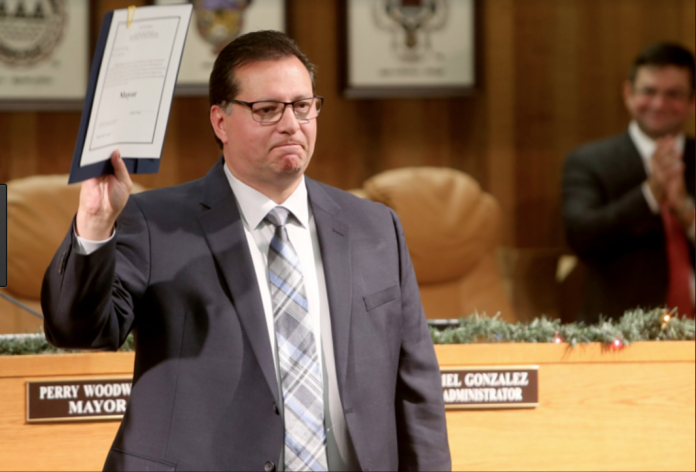Immigration, housing and a state road in terrible disrepair topped the agenda when elected officials from just about every level gathered in Gilroy to share views on key issues facing city, county, state and federal governments and constituents.
This year’s Fourth Annual South County Legislative Summit attracted two mayors, a state senator and assemblymember and two U.S. Representatives who represent the city in Washington D.C.
“Each year we have seen more and more people interested in the summit. Having all of our region’s elected officials attending the summit allows residents and business owners alike to learn about legislation at all levels of government and what the impact is going to be to South County,” said Mark Turner after the April 21 event at the Hilton Garden Inn on Monterey Road.
“We were pleased to see the turnout,” said Turner, President and CEO of the Gilroy Chamber of Commerce, which hosts the annual event, that drew 110 people.
“This year’s hot topics were water, immigration, homelessness, roads and taxes,” he said, reflecting comments by the elected officials, who these days refer to themselves as, the electeds.
Gilroy Mayor Roland Velasco used the event to focus attention on the problem created for police departments by passage in 2014 and 2015 of state Propositions 14 and 57, respectively.
The voter-passed laws reduced from felonies to misdemeanors a variety of serious but non-violent crimes, including some drug and theft offenses. Police now can only issue citations.
The problem is “taking a toll on our police officers” throughout the state, Velasco said.
The mayor also cited “a lot of new energy” working to improve the historic downtown business district, which he said is “starting to rise again, and that is very, very good news.”
And he reminded folks that Gilroy was a 2016 recipient of the “Turning Red Tape into Red Carpet” award from the Silicon Valley Leadership Group. The honor awards cities for outstanding work in economic competitiveness and business development.
The city’s economic health, Velasco declared, “Has recovered from the great recession.”
State Senator Bill Monning, D-17th, freshman U.S. Congressman Jimmy Panetta, D-20th, and veteran U.S. Rep. Zoe Lofgren, D-19th, echoed similar concerns about the agricultural industry and its main source of workers as the country goes through a contentious debate about its flawed immigration system.
Noting agriculture is the biggest industry in his district and depends on an immigrant work force for its success, Monning said we must be “tough on law violators but protect the work force.
“Sanctuary cities does not mean sanctuary for criminals,” he said. “We do not support executive orders that erase due process.”
Panetta said he and dozens of other new members of the House have signed a “commitment to civility,” and that it’s important to “let the President know how important immigration is to this area.”
Lofgren said that while there is a “very strong need” to reform immigration law, the administration’s increased enforcement efforts have been “unreasonable,” adding that such enforcement policies threaten to “devastate” businesses and farms.
One of the difficulties faced by ag workers and other low-income earners is finding a place to live, said State Assembly member Anna Caballero, D-30th District.
She supports the repurposing of infill parcels in cities for affordable housing for workers and seniors and for homeless shelters.
Sixty-seven percent of people in her district spend 30 percent of their income on housing, she said.
“They are one paycheck away from losing it all,” Caballero said, adding that the state is a million housing units short of meeting current needs and that $1 billion should be earmarked for such housing.
On a more local level, Santa Clara County District 1 Supervisor Mike Wasserman applauded the county’s housing efforts, saying it has created 5,000 affordable housing units, supplied financial help to first-time homebuyers and reduced the homeless population by 15 percent.
“We are leading the way in the nation going after the housing problem,” Wasserman said.














